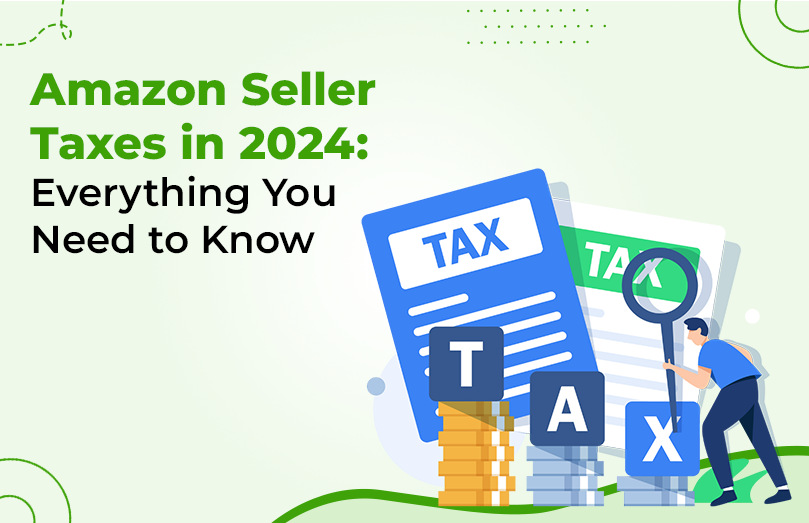As an Amazon seller, staying on top of your tax obligations is essential for compliance and optimizing your business’s finances. This guide covers key aspects of Amazon seller sales taxes including tax requirements, reporting income, utilizing deductions, advertising costs, optimizing your Amazon Seller Central account, and staying compliant as e-commerce regulations evolve. Follow the steps outlined here to simplify Amazon taxes and leverage them to enhance your operations.
Understanding Your Sales Tax Requirements
Sales tax for Amazon transactions involves some complexities. Amazon collects sales tax on sellers’ behalf in many states, but you still have obligations to understand.
Several key factors determine your sales tax nexus and requirements:
- Physical presence – If you have a business location, inventory, etc. in a state you likely need to collect that state’s sales tax.
- Volume of sales – Most states have economic nexus laws dictating thresholds of sales into the state that obligate out-of-state sellers to collect sales tax on Amazon sellers. These thresholds range from $100,000 to over $500,000 in sales.
Be sure to thoroughly research the nexus laws and economic thresholds in each state. Register for sales tax permits in every applicable state through the department of revenue. This will provide the permit numbers you need to input into your Seller Central account so Amazon can collect and remit sales tax on your behalf.
Stay on top of monitoring your multistate requirements. Utilize accounting tools to track your sales tax liabilities across states. Accurate reporting and payment of taxes is crucial for compliance.
Reporting Income and Maximizing Deductions
You’ll need to accurately report your Amazon business income and expenses on your tax return, generally using Schedule C attached to your Form 1040 as a sole proprietor.
Meticulously document any business expenses and deductions you can utilize to lower your taxable income:
- Cost of goods sold – Inventory purchases, materials, manufacturing costs
- Amazon fees – FBA, referral, and subscription fees
- Shipping costs
- Advertising expenses – Sponsored ads and other marketing
Maintaining organized records of your sales, expenses, income sources, and liabilities is key. Bookkeeping software like QuickBooks or Xero can make the process smoother. Precise accounting enables transparency in case of an audit and helps you identify areas to optimize your business’s finances.
Leveraging Amazon Advertising to Growth and Deductions
Investing in Amazon’s advertising platform like Sponsored Ads can provide invaluable visibility for your products and lead to increased sales.
- By bidding on strategic keywords, your ads get placed in front of high-intent customers.
- More ad impressions and clicks leads to greater sales and improved organic rankings and traffic over time.
You can deduct any costs associated with Amazon advertising services as business expenses. Document each advertising campaign’s costs to accurately claim deductions which will lower your taxable income.
Optimizing Your Seller Central Account
Your Seller Central interface offers several tools to help streamline sales tax management and enhance deductions.
Segment your sales channels and categorize income and expenses for more effective accounting. For example, separate FBA sales from retail/online sales. Breakdown advertising costs by campaign type. Monitor inventory levels by product line or SKU. This granular categorization enables accurately identifying deductions and lowers your overall tax liability.
Use FBA services for fulfillment where applicable. In included states, Amazon will handle collecting and remitting the sales tax, simplifying compliance.
Regularly analyze your inventory levels, sales velocity, costs of goods, and other metrics. Make data-driven decisions on inventory purchasing, production, and Amazon performance advertising spend to maximize profitability.
Staying Compliant as Regulations Change
E-commerce tax regulations continue to evolve rapidly. Monitor sales tax registration thresholds in each state and stay up-to-date on any new tax laws affecting online sellers.
For example, understand the process of marketplace tax collection, especially how marketplace facilitator laws that require Amazon to collect tax on your behalf affect your obligations. Consult a tax professional to adapt your compliance strategy accordingly.
Leverage the updates and resources in your Seller Central account. Be diligent in your approach to compliance – it will optimize your tax outcome amid ongoing changes.
Conclusion
Managing multistate tax obligations for businesses working on the online platform (like Amazon) can seem daunting, however shouldn’t have to be. With the help of the above mentioned steps, businesses can evaluate sales tax requirements, maximize deductions, track expenses, and monitor regulatory swaps.
Stay organized, seek expert advice, and leverage Amazon tools to take control of your seller taxes. The effort pays dividends in compliance with the policies and financial efficiency, making your business ready for sustainable success in the competitive ecommerce landscape.
If you are looking for expert advice for your Amazon account management services, partner with MMF Infotech Technologies, a top notch service provider in the ecommerce marketplace. It offers comprehensive assistance in managing, accounting, FBA reimbursements and Amazon advertising contributing to organic growth. MMF’s sellers can navigate through the nuances of Amazon sales tax effortlessly, leading to smooth account management and sustained success. Elevate your Amazon presence with MMF, and let your products shine in the competitive e-commerce landscape.


